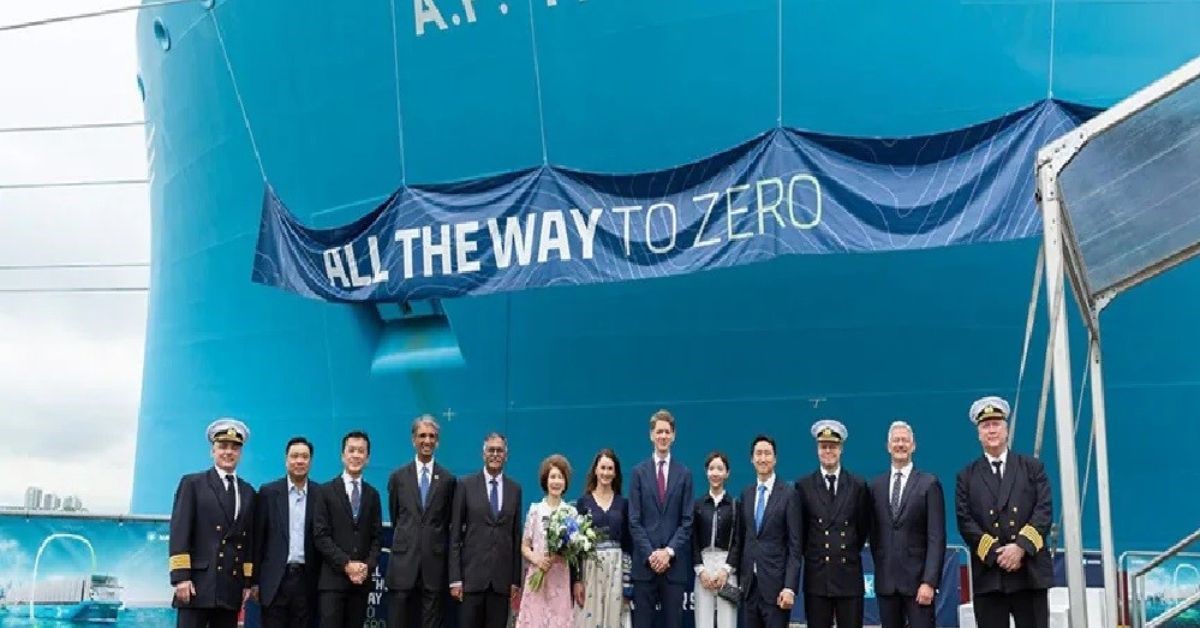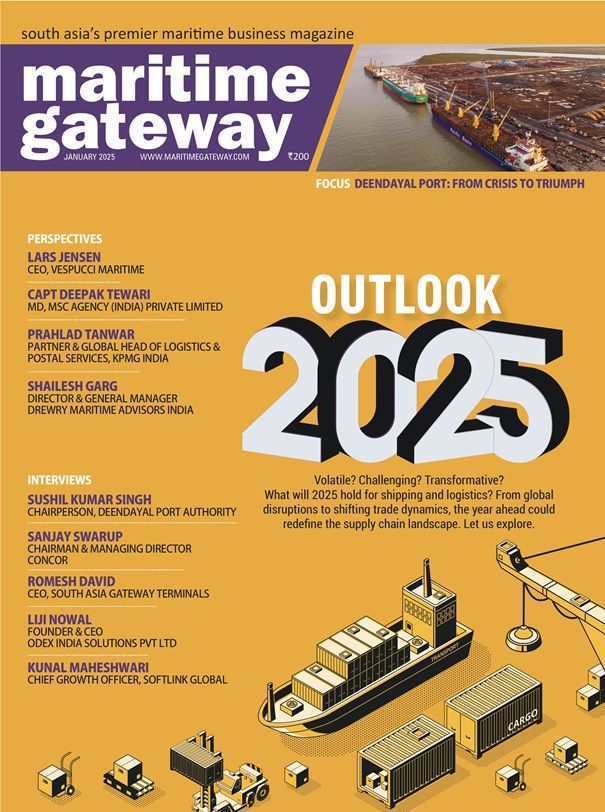As part of her inaugural journey from Asia to Europe, A.P. Moller-Maersk (Maersk) hailed the arrival of its newest dual-fuel methanol container carrier in Singapore. The ship is the eighth in Maersk’s fleet to run on methanol and is named “A.P. Møller” in honor of Arnold Peter Møller, the company’s founder. 18 sizable dual-fuel methanol boats, including “A.P. Møller,” are expected to be delivered in 2024 and 2025. She can transport 16,592 standard containers (TEU) and was constructed at Hyundai Heavy Industries in Ulsan, South Korea. In 2024, Maersk added seven of these sizable dual-fuel methanol ships to its fleet.
A key element of Maersk’s decarbonization objective of reaching net-zero greenhouse gas (GHG) emissions by 2040 is the delivery of the dual-fuel fleet. When compared to traditional fossil fuels like bunker oil, lower-emission methanol can cut greenhouse gas emissions by at least 65% (depending on the feedstock and methanol production process, computed on a life cycle basis). In order to make the reduced emissions transport option viable and competitive, Maersk has been pushing the International Maritime Organization (IMO) member nations to enact aggressive regulations that close the price differential between fossil fuels and alternatives with lower greenhouse gas emissions.
In July 2023, the Laura Maersk underwent the first ship-to-containership methanol bunkering in Singapore with the help of the Maritime and Port Authority of Singapore. This was the country’s first ship-to-ship methanol bunkering, demonstrating a long-term partnership and support for Singapore’s objective to supply methanol at scale and position itself as a significant offtake location for alternative maritime fuels like methanol.







